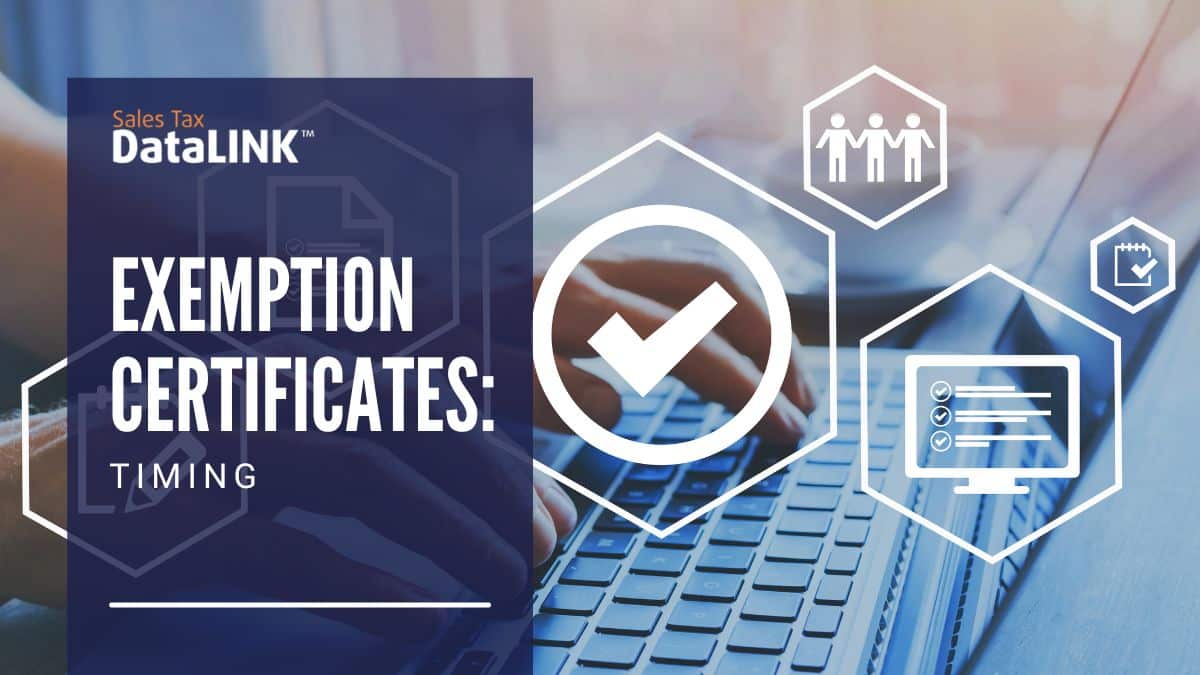Manufacturers often don’t collect sales tax. A retailer making a wholesale purchase won’t pay sales tax to the manufacturer, but will instead collect sales tax from the end user. Manufacturers might feel relaxed about sales tax, knowing that their biggest job is usually just making sure they have the right exemption certificates on hand in case of an audit.
In fact, manufacturers are often so relaxed about sales tax that they make sales, mention the exemption certificate casually to the retailer, and file it whenever it turns up. Many states give companies 90 days to get an exemption certificate after a sale. Unless you’re expecting an audit, you might — if you’re a manufacturer — put exemption certificates low on your list of priorities.
Things Have Changed
In the wake of the Wayfair decision, states are updating their sales and use tax laws very briskly. By now, every state that collects sales tax, including those that have local but no state sales tax, will require sales tax compliance from remote sellers. That means that you may be responsible for sales tax compliance for every state where you do business.
The Wayfair decision redefined nexus and allowed states to collect sales tax from online, out-of-state sellers. Most of the new laws are focused on defining nexus and setting limits for the application of sales tax compliance requirements. Kentucky, for example, requires sales tax collection and filing from online sellers who have 200 transactions in Kentucky or get $100,000 in revenue from Kentucky in one year. Many states are using these limits. They are the ones the Supreme Court upheld in the Wayfair decision.
But states are also seizing the opportunity to make other tax law changes. One area where things are tightening up is the question of exemption certificates. Many states are now insisting that exemption certificates must be filed at the same time as the purchase they cover.
A Disturbing Example
Say that you made a sale for $100,000 worth of goods in a neighboring state on October 1. Your buyer thought he had sent you an exemption certificate before. When you check, you find that you have no exemption certificate for this reseller on hand. It comes along midway through the month.
Since the exemption certificate was not filed before the sale on the 1st, it could be rejected. Your sale of $100,000 of taxable goods means that you have reached the threshold. Not only are you responsible for paying sales tax on that transaction, but you must collect sales tax on any other sales you make to consumers in that state.
In a drop-ship situation or if you sell discontinued items or repair parts directly to consumers, you will now be required to collect and remit sales tax for the rest of the year even on these small transactions.
In most states which have made new tax laws of this kind, companies are responsible for collecting sales tax when they have reached the sales threshold in the current year or the previous year. So you would now have to collect sales tax not only this year but for all of next year as well.
You may only make a handful of sales to end users in that state, and it may be clear that the exemption certificate error was just that: an error. Even so, you could find yourself in a sales tax nightmare.
Exemption Certificates
It’s smart to develop a policy for exemption certificates.
- Determine the current rules on sales tax exemption certificates in each state where you do business. Since rules are changing fast right now, check regularly for changes.
- Make a policy requiring exemption certificates at the time of the first sale to any company.
- Make sure that everyone who makes sales is aware of and follows the policy.
- Use a central storage system for exemption certificates, whether digital or physical copies or both. Don’t allow storage of exemption certificates in multiple places.
- Authorize one person to keep track of exemption certificates. This person should make sure that every certificate is properly completed before it is filed.
SalesTaxDataLINK simplifies sales tax compliance, even at times when it’s especially complicated. Try it out with your own data for free.




